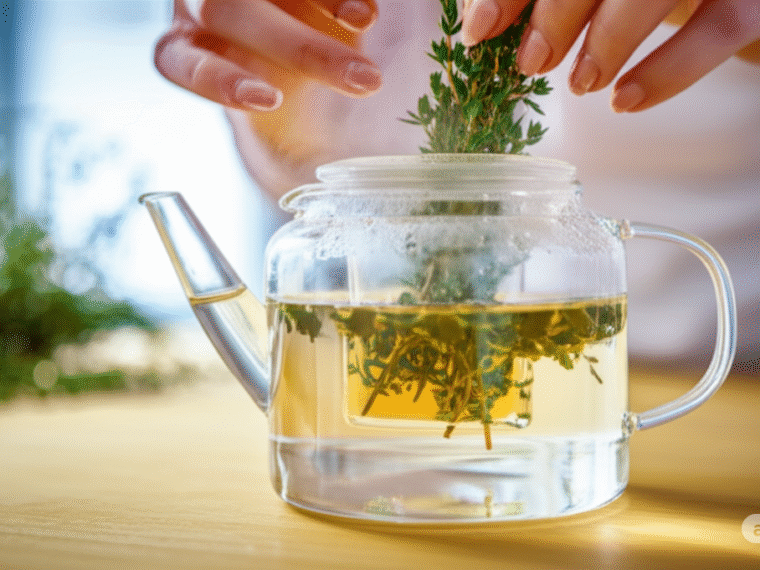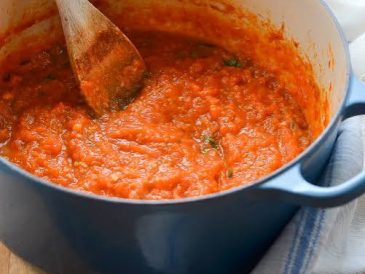An image circulating online boldly claims thyme is “the most powerful herb” that destroys parasites, urinary tract and bladder infections, herpes, flu viruses, joint pain, arthritis, sciatica, candida — and more. But is there truth behind the hype?
Let’s explore the science-backed reality of thyme and discover how this fragrant herb may truly benefit your health — and where we should be cautious. ✅
What Is Thyme?
Thyme (Thymus vulgaris) is a fragrant herb from the mint family, commonly used in cooking — but it’s also been used in traditional medicine for centuries. Why? Because it’s rich in powerful compounds like thymol and carvacrol, known for their antimicrobial, anti-inflammatory, and antioxidant properties.
🔬 Let’s Break Down the Claims
1. Kills Parasites
✔️ Study: A 2010 study in the Journal of Essential Oil Research found that thyme essential oil had strong effects against Giardia lamblia, a common intestinal parasite.
🧪 Conclusion: Promising results — especially in lab settings — but more human research is needed.
2. Fights UTIs and Bladder Infections
✔️ Fact: Thymol and carvacrol are proven to fight bacteria, including those responsible for urinary tract infections.
✔️ Study: A 2018 Phytotherapy Research review highlighted thyme’s potential against multidrug-resistant bacteria.
⚠️ Note: Direct evidence in humans is still limited — more trials are needed.
3. Antiviral Effects (Herpes & Flu)
✔️ Study (Flu): Planta Medica (2009) found thyme essential oil effective against influenza in vitro.
✔️ Study (Herpes): Some studies show thymol may inhibit the herpes simplex virus in lab tests.
❗Reminder: While early lab results are promising, we need clinical studies in humans to confirm these effects.
4. Combats Candida (Yeast Infections)
✔️ Study: A 2013 article in Journal of Medical Microbiology confirmed thymol’s antifungal activity against various Candida species.
💡 Takeaway: Thyme oil could help as part of natural antifungal strategies.
Joint Pain, Arthritis, and Sciatica Relief?
The claims that thyme helps with inflammation and pain are not unfounded.
✔️ Study: In Food and Chemical Toxicology (2012), carvacrol reduced inflammation in animal models.
😌 Soothing potential: Topical use (diluted essential oil) or regular dietary inclusion might offer relief — but don’t skip medical treatment for chronic conditions.
⚖️ A Balanced Perspective: What You Should Know
Before you run to your herb garden and rub thyme on everything, here’s what to consider:
1. Dosage Matters
Essential oils are very concentrated — they must be diluted and used with care. The benefits differ when using fresh thyme, tea, or oils.
🫖 2. How You Use It
- Drink it as herbal tea for sore throat relief.
- Use thyme essential oil (properly diluted!) for aromatherapy or massage.
- Cook with it — it’s delicious and health-supportive.
🩺 3. Not a Cure-All
Thyme should complement, not replace, medical care — especially for infections, viral illnesses, or chronic pain.
🧬 4. More Human Studies Needed
Most promising findings come from lab or animal studies. We need clinical trials in humans to confirm dosage, efficacy, and safety.
🍲 Easy Ways to Add Thyme to Your Life
- Add to soups, stews, roasted vegetables, or marinades
- Make a soothing thyme tea for coughs
- Diffuse thyme oil with a carrier oil to purify indoor air
- Combine with honey and lemon for a natural sore throat remedy
Final Thoughts
Thyme is not just a culinary delight — it’s a natural powerhouse with real medicinal potential. The claims online, though sometimes exaggerated, are partly supported by science — especially its antimicrobial and anti-inflammatory properties.
However, it’s important to approach these claims critically and responsibly. Talk to your doctor, especially if you’re considering thyme as a remedy for serious conditions.
🛑 Disclaimer: This article is for informational purposes only and does not constitute medical advice. Always consult a qualified health professional before using herbal remedies, especially if you’re pregnant, nursing, or taking medication.






1 Comment
4. More Human Studies Needed
Most promising findings come from lab or animal studies. We need clinical trials in humans to confirm dosage, efficacy, and safety.
I’m interested in being a test dummy. Lol
How do I apply.
Comments are closed.